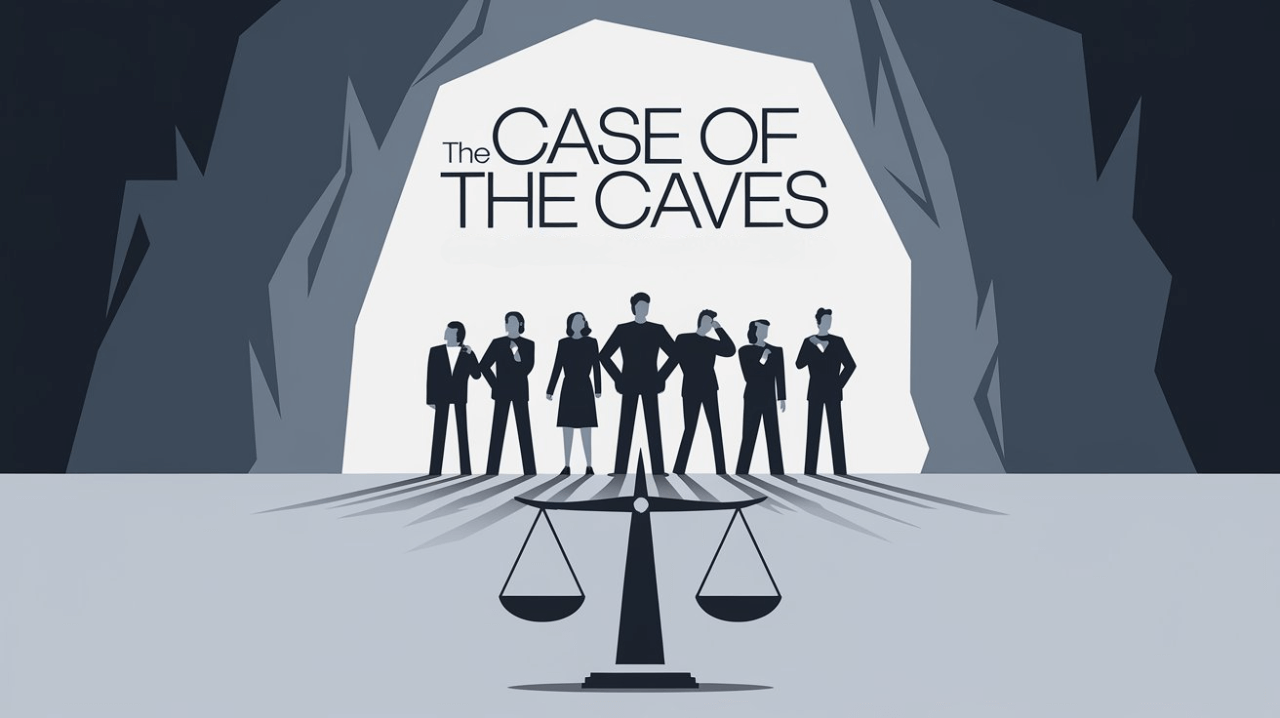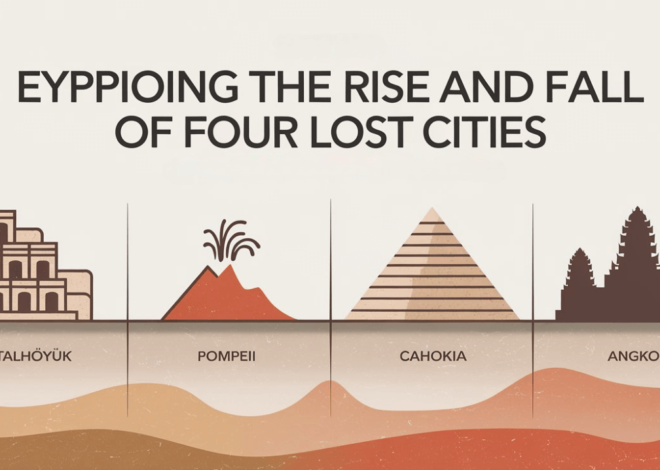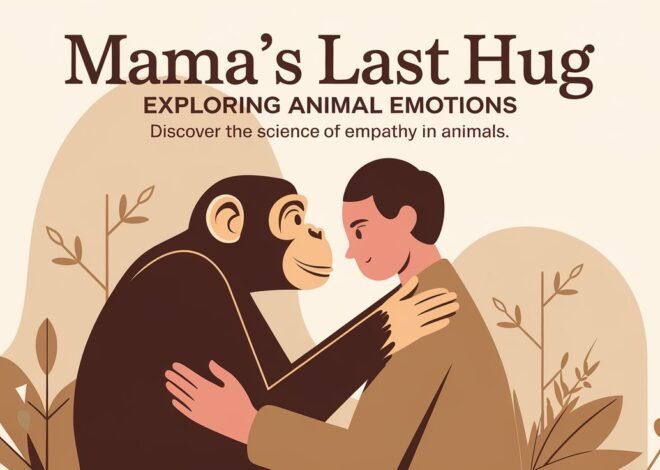
The Case of the Caves: A Deep Dive into Legal Ethics, Survival, and Morality
Introduction: An Extreme Legal and Ethical Dilemma
What if you were trapped in a remote cave, with no food or hope of survival, facing a terrible question: could you sacrifice one of your own to survive? The Case of the Caves presents this chilling thought experiment, exploring the intersection of law, ethics, and human survival in extreme conditions. In this article, we’ll examine the core legal and moral questions raised by this case and discuss its lasting impact on legal theory, particularly in relation to survival ethics and the limits of law.
What Is The Case of the Caves?
The Case of the Caves is a fictional scenario introduced by American legal scholar Lon L. Fuller in 1949, which challenges readers to confront profound ethical and legal dilemmas. The case centers around a group of five explorers trapped in a cave after a landslide, with no immediate chance of rescue. As supplies run out and survival becomes increasingly unlikely, one member of the group, Whetmore, proposes a deadly solution: should they sacrifice one person to ensure the others survive?
When they establish radio contact with rescue teams, the news is grim: it will take ten days for help to arrive, and none of them are likely to survive without drastic measures. In a desperate moment, Whetmore suggests they draw lots to determine who will die for the group’s survival. Though the group agrees, Whetmore withdraws his consent before the lottery is drawn. Despite this, the remaining members proceed with the draw, and Whetmore is selected to be sacrificed. After surviving on his flesh, the group faces murder charges upon their eventual rescue.
Fuller’s case study is not just a scenario but a rich examination of legal reasoning, moral philosophy, and the limits of law. The case has remained influential in both legal studies and ethics, offering valuable insights into judicial decision-making and the nature of justice under extreme conditions.
Key Legal and Ethical Questions Raised
The case is defined by its complexity, not only in the facts but also in the different judicial opinions it sparked. Legal scholars and judges have debated key issues surrounding the application of law, the ethics of survival, and the principles of justice.
1. Does Nuscan Law Apply in Extreme Circumstances?
One of the first questions that arises is whether the laws of the fictional nation of Nusca, under which the explorers were governed, still apply when survival depends on breaking fundamental legal norms, such as taking another person’s life.
Judge A’s Argument: A New Social Contract in the Cave
Judge A argued that the explorers, isolated from society and trapped in the cave, had effectively returned to a “state of nature” – a concept from social contract theory. In this state, the usual laws of society lose their power, and survival itself becomes the ultimate moral and legal concern. According to this view, the explorers’ actions were justified because they had formed a new, albeit temporary, social contract based on the necessity of survival.
In this context, Judge A acquitted the explorers, stating that their decision to sacrifice Whetmore wasn’t a crime but an unfortunate necessity to preserve the lives of the others. This argument raises important questions about whether laws designed for civilized society can be applied when people are reduced to primal instincts and survival is at stake.
Judge B’s Rebuttal: The Continuity of Law
Judge B rejected this argument, questioning when exactly the explorers left civilization and entered the “state of nature.” If we recognize that they remained bound by the same laws as the rest of society, then the act of killing Whetmore could not be justified. Laws, according to Judge B, are meant to protect society and individuals alike, and they should not be suspended even in the face of extreme circumstances.
2. Textualism vs. Purposivism: How Should We Interpret Law?
Another major point of contention lies in the interpretation of Nuscan law. The law is clear: “Anyone who intentionally takes another’s life shall be sentenced to death.” But how should this law be interpreted in the context of extreme survival situations?
Textualist Interpretation: A Literal Reading of the Law
Textualists argue that the law should be interpreted strictly, according to its literal meaning. Since the explorers intentionally took Whetmore’s life, they should be sentenced to death under the law. This approach emphasizes the importance of upholding legal texts as they are written, without regard to the broader context or the intentions behind them.
Purposivist Interpretation: The Intent Behind the Law
Purposivists, on the other hand, argue that the purpose of the law should be taken into account. The goal of criminal law is to protect society, and the application of a death penalty in such an extreme case might not align with the law’s intended purpose. In situations of imminent danger, where survival is at stake, the law’s primary role should be to serve justice, not punish individuals acting out of necessity.
This debate reflects a broader legal tension between textualism (focusing on the exact words of the law) and purposivism (considering the intent behind the law).
3. The Necessity Defense: Survival or Murder?
The third major issue revolves around the legal defense of necessity. Can actions that would normally be criminal, such as killing, be justified by the need to survive?
Can Hunger Justify Killing?
One argument presented by the judges was whether hunger, the driving force behind the explorers’ decision, could justify taking another’s life. Opponents of this argument pointed out that necessity cannot justify taking a life merely to satisfy basic survival needs. On the other hand, those in favor of recognizing necessity as a defense argued that the explorers had no other viable options. Without external help, their chances of survival were slim, and they faced a real and immediate threat to their lives.
Judge A’s Proposal: Alternatives to Murder?
Judge A suggested that the explorers could have waited for one person to die naturally, or consumed non-vital body parts, rather than taking Whetmore’s life. However, this argument was quickly dismissed, as it assumed an unrealistic level of rationality under extreme stress. Given the imminent danger of death, such alternatives seemed unfeasible.
The Value of Life: Absolute or Relative?
The final point in the debate over necessity concerns the value of life itself. Some judges argued that human life is immeasurable and cannot be sacrificed under any circumstances. Others, however, believed that the survival of the group justified the sacrifice of one individual, highlighting the utilitarian perspective that the greatest good for the greatest number should take precedence in life-or-death decisions.
The Lasting Impact of The Case of the Caves
The Case of the Caves continues to be a powerful tool for legal and ethical analysis. It serves as a poignant reminder that law is not a rigid set of rules but a dynamic and often contradictory field that seeks to balance competing values like justice, survival, and morality.
The case also demonstrates the challenges that judges face when applying the law in extreme situations, where the facts might not neatly align with existing legal frameworks. This is why The Case of the Caves has become an essential part of legal education, particularly in exploring the complexities of legal reasoning and moral decision-making.
The unresolved debates in the case reflect the complexities of life itself. Sometimes, law must contend with deep ethical questions about the sanctity of life, survival, and the role of the state in regulating human behavior. By challenging us to consider these questions, The Case of the Caves remains as relevant today as it was when it was first published.
Conclusion: A Timeless Legal Masterpiece
The Case of the Caves is more than just a legal case; it is a profound exploration of the boundaries between law and ethics, and it encourages us to reflect on how we define justice in extreme situations. The various judicial opinions provide a snapshot of the ongoing evolution of legal thought and highlight the complex nature of judicial decision-making.
If you’re interested in delving deeper into legal philosophy, survival ethics, and the role of law in extreme circumstances, The Case of the Caves offers invaluable insights. It reminds us that law is not a static set of rules, but a flexible and evolving system that must adapt to the realities of human existence.
For more thought-provoking legal discussions, visit talkthebook.com for weekly updates and insights into the world of law, ethics, and philosophy.


